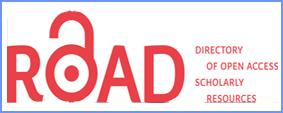The Moslem as Minority Community in Democracy Process (An Analysis of the Regional Election Dynamics in Toraja Regions)
Abstract
This paper aims to showed the inclination that occur in democratic process associated with the presence democratization in the “Era Reformasi”. This era begin as soon as the end of Suharto regime in 1998 that considered to brought Indonesia into democratic period which also occur in the local level. One thing that considered as effort to achieve democracy is the implementation of Decentralization via the Regional Autonomy that was regulated thru some regulations, where today the new law is the Law No. 23 year 2014. That Laws gives more opportunity to the local people to manage their area based on their objectives context. It makes some local issues including local identity became important aspect in the regional social political dynamics including in the regional election. Through the directly electoral system where people vote became the most important factor of the results, some local context then becomes prominent aspects in the process. When a region occupy by non-moslem or the Christian as like as the Toraja lands consequently issues related to the Christianity becomes important thing during the election. That condition than becomes problematic for the non-mosleem people that also have rights to vote or to be voted based on the democracy values and the laws with the fact that they are the minority in that regions. Pictures from the Toraja regional election then showed tendency on how the moslem people positioned theirselves as minority in the political dynamics of the Christian majority land and what its implication to the social politics construction in this regions. Finally fact from toraja’s land will show whether a unique condition as the contextual experience of the mosleem community as minority in particular region while in fact they are the majority in the nation.
References
Adams, M. Kathleen. 1997. Ethnic Tourism and the Renegotiation of Tradition in TanaToraja (Sulawesi, Indonesia). Ethnology, Vol. 36, no. 4 (Autumn). Pp 309-320.
Agustino, Leo, 2009. Pilkada dan Dinamika Politik Lokal, Pustaka Pelajar, Yogyakarta.
Ananta, Aris et al., 2015. Demography of Indonesia's Ethnicity. ISEAS–YusofIshak Institute.
Baruallo, Frans. 2010. Kebudayaan Toraja (Masa Lalu, Masa Kini dan Masa Mendatang). Universitas Atmajaya, Jakarta.
Beetham, David et.al.,2008. Assessing the Quality of Democracy A Practical Guide. International Institute for Democracy and Electoral Assistance.
Bhakti, Ikrar Nusa, Sri Yanuarti, and Mochamad Nurhasim. 2009, Military Politics, Ethnicity and Conflict in Indonesia. CRISE Working Paper No. 62. January.
Crouch, Harold. 2010, Political Reform in Indonesia after Soeharto, ISEAS Publishing, Singapore
Dalton, Russell J. et.al.,2007,Understanding democracy: data from Unlikely Places.Journal of Democracy Volume 18, Number 4, pp.142-156, October.
Davidson, Jamie and David Henley. 2008. In the name of adat: regional perspectives on reform, tradition, and democracy in Indonesia, Modern Asian Studies 42, pp. 815-852,
De Jong, Edwin. 2013. Making a Living between Crises and Ceremonies in TanaToraja: The Practice of Everyday Life of a South Sulawesi Highland Community in Indonesia. Leiden and Boston : Brill Academic Publishers.
Eklöf, Stefan. 1999. Indonesian Politics in Crisis. The Long Fall of Suharto 1996-98. Nordic Institute of Asian Studies (NIAS). Studies in Contemporary Asiaseries, no. 1
Feith, Herbert. 1957. Indonesian elections of 1955. Ithaca: Cornell Modern Indonesia Project.
Feith, Herbert. and Lance Castles (eds.). 1970. Indonesia political thinking 1945-1965. Indonesian Political Thinking, 1945-1965, Ithaca, New York, and London: Cornell University.
Feith, Herbert. 1963. Dynamics of Guided Democracy, in Indonesia, ed. Ruth McVey (New Haven, Conn.: Yale University)
Hadiz, Vedi R. 2011. Localizing Power in Post-Authoritarian Indonesia. a Southeast Asia perspective. Stanford Press USA and ISEAS Publishing Singapore.
Hadiz, Vedi R. 2010. Political Islam in Post- Authoritarian Indonesia. CRISE Working Paper No. 74.
Holtzappel, Coen J.G. and Martin Ramstedt (eds.). 2009. Decentralization and Regional Autonomy in Indonesia. Implementation and change. ISEAS Publishing Singapore.
Kobong, Th, et.al.,1992. Aluk, Adat dan Kebudayaan Toraja dalam perjumpaannya dengan injil. Pusbang-Badan Pekerja Sinode Gereja Toraja, Indonesia.
Ratnawati, Tri and SyamsuddinHaris, 2008, Political Parties in Indonesia from the 1950s to 2004: An Overview. CRISE Working Paper No. 61 December.
Roth, Dik. 2005, Lebensraum in Luwu Emergent identity, migration and access to land. Bijdragen tot de Taal-, Land- en Volkenkunde (BKI) 161-4. :485-516
Sukri, 2016. Democracy and Revivalism of Ethnic Group Identity In the Indonesian Regional Election after Suharto. (paper) was presented in 24th IPSA World Congress. Poland.
Suryadinata, Leo, Evi Nurvidya Arifin, and ArisAnanta. 2003. Indonesia’s Population: Ethnicity and Religion in a Changing Political Landscape. Institute of Southeast Asian Studies, Singapore
Tyson, Adam D. 2010, Decentralization and Adat Revivalism in Indonesia; The Politics of Becoming Indigeneous, Routledge New York.
Ufen, Andreas, 2006. Political Parties in Post-Suharto Indonesia: Between politik aliran and ’Philippinisation’. GIGA Research Programme: Legitimacy and Efficiency of Political Systems. No. 37. December
Vickers, Adrian. 2013. A History of Modern Indonesia: Second Edition. Cambridge University Press.
Waldron, Jeremy, “Indigeneity? First Peoples and Last Occupancy”. Victoria University of Wellington, Law School Forthcoming. Journal of Public Law. Vol. 1 , pp.1-57.
Waterson, Roxana, 2009. Paths and Rivers; Sa’danToraja Society in Transformation. KITLV, Leiden.
Wilson, Chris, 2008, Ethno-religious Violence in Indonesia : From soil to God. Routledge
Yamashita, Shinji. 1994. Manipulating Ethnic Tradition: Funeral Ceremony, Tourism, and Television among the Toraja of Sulawesi. Indonesia, No. 58 (Oct., 1994), pp. 69-82.




.png)









